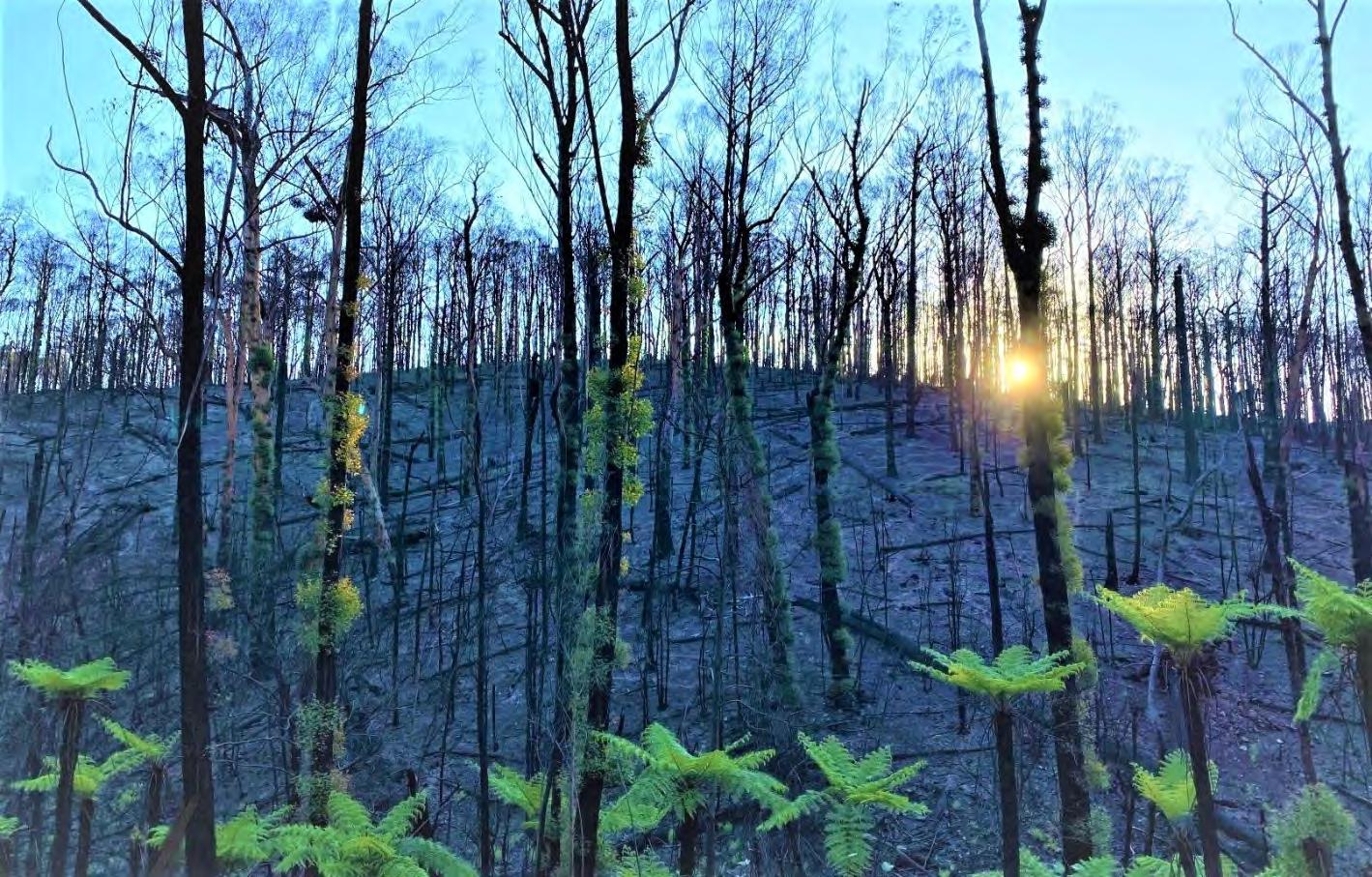4
Inquiry into the 2019-20 Victorian Fire Season
Message from the Inspector-General During the 2019–20 fire season Victoria faced its most challenging bushfire emergency since the devastating 2009 bushfires, with a geographic scale not seen since 1939. The significant human and property losses, and a range of consequential impacts, are still being experienced. Victoria is no stranger to bushfire emergencies. Over time there has been an opportunity to learn from each event and improve the way in which we prepare for and respond to fires. However, every event is different and regardless of the efforts of Victorian communities, government, and non-government organisations to prepare, there are always learnings to be had and future improvements to be realised. Victoria also finds itself in a situation where the effects of a global pandemic are concurrently impacting fire-affected communities. The situation is further complicated by the longer-term and still-present consequences of drought. While not specified in the terms of reference for this Inquiry, the impacts of the coronavirus (COVID-19) pandemic will be a key factor throughout Phase 2 of the Inquiry, which focuses on community recovery. Clearly, these compounding events will significantly affect community recovery and it will sometimes be difficult to discern between the relative impacts of each. Since Victoria’s emergency management reform process began after the 2009 Victorian Bushfires Royal Commission and the subsequent Review of the 2010–11 Flood Warnings and Response, the State has endured a number of emergencies resulting in review or inquiry. These include but are not limited to the 2014 Hazelwood Mine Fire, the 2015 Wye River/Jamieson Track Fire, and the 2016 Thunderstorm Asthma emergency. Additionally, as Inspector-General for Emergency Management (IGEM) I conduct an annual program of planned reviews to consider emerging risks or emergency management performance, as part of a legislated responsibility. These high-level assurance activities are often supported by operational debriefing and review processes at the agency and multi-agency level through a structured approach to improvement and the application of a formal lessons-management framework. As a result, my Office can adopt a strategic approach that focuses on the emergency management system. While operational strategy, decision-making, actions and outcomes have been considered by this Inquiry, the more tactical operational decision-making issues that emerge through a dynamic and protracted major emergency will be reviewed in greater detail at the agency level. Consideration of all decisions at that level was not the primary focus of this Inquiry, however the consequential impact of decisions on community safety outcomes and system performance is considered. Relevant and essentially linked to this Inquiry is the IGEM Review of 10 Years of Reform in Victoria’s Emergency Management Sector (the 10 Year Review), completed in December 2019. There are several themes in that review directly relevant to the 2019–20 fires. These include governance; capability and capacity; resilience and community engagement; community safety and preparedness; and rebuilding and recovery. IGEM understands that this report is currently under consideration by government. Along with the broader Victorian community, the Inquiry has not been immune to the impacts of the COVID-19 pandemic. Conducting an Inquiry during an evolving major emergency is far from ideal and presents its own risks and limitations. Due to the response requirements of the pandemic for agencies also involved in the bushfire emergency, the availability of key witnesses and access to critical evidence becomes difficult. Further, the extensive terms of reference and necessarily short timeframe in which Phase 1 of the Inquiry has been conducted added a significant burden. Restrictions imposed by the pandemic also meant that the opportunity to benefit from a tiered system of post-event, single and multi-agency debriefs was affected. Many agencies had not completed their internal debrief process at the time of the Inquiry, which meant that drawing upon some of the more detailed post-season reflections of the sector was not possible. That said, I am satisfied that the evidence available to the Inquiry was sufficient to enable the identification of those areas of preparedness and response in greatest need of improvement. Similarly, COVID-19 has affected my capacity to engage directly with fire-affected communities.









